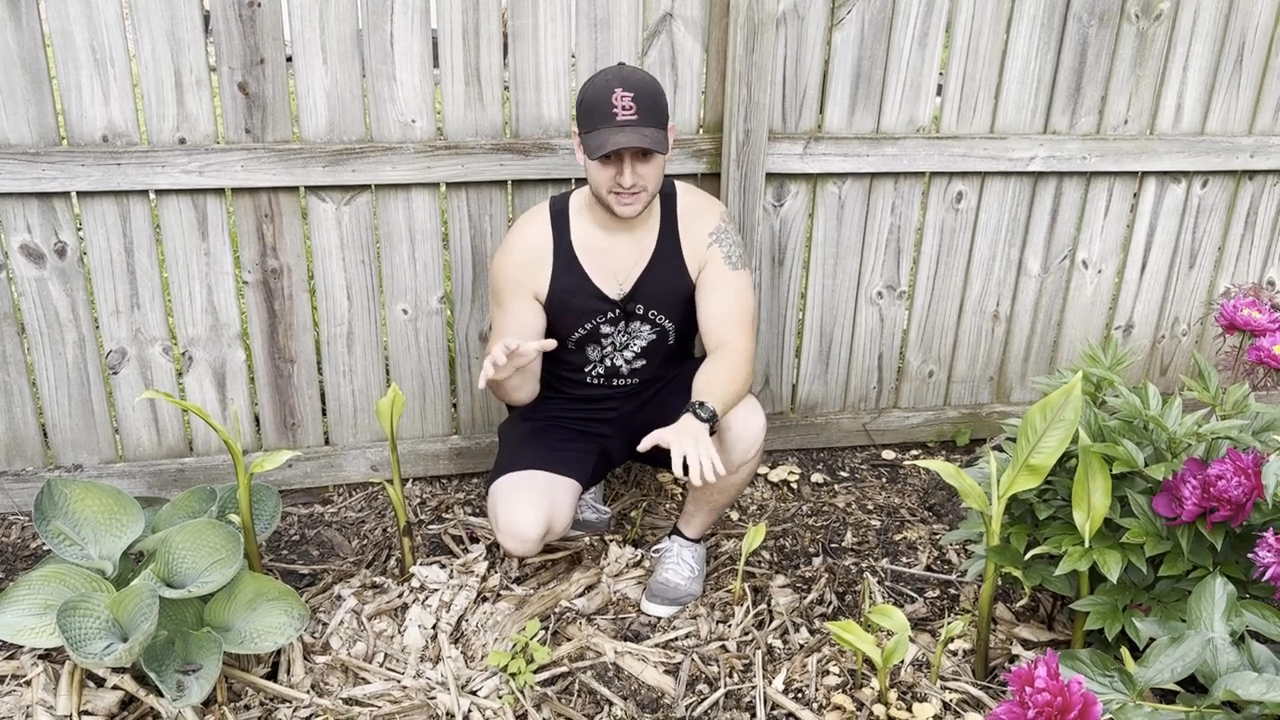Hey guys, welcome to another Plant Fanatics article! My name is Chad, founder of the American Fig Company. Today, I want to introduce you to the magnificent and hardy Musa Basjoo, or the Japanese Fiber Banana. This incredible plant is known as the world's most cold-hardy banana tree, and it’s a game-changer for those looking to add a tropical flair to their gardens, regardless of the climate. So, let’s dive in!
Introduction to Musa Basjoo
Below me, you can observe the world's most cold-hardy banana tree. The Musa Basjoo, commonly referred to as the Japanese Fiber Banana, thrives in planting zones as low as zone 5. Despite what its name suggests, it isn’t technically a tree but a pseudostem, meaning it is not a true woody tree. However, it belongs to the banana genus and is regarded as a true banana species.

This plant is capable of reaching impressive heights up to 15 feet. By the end of the growing season, Musa Basjoo will typically stand between 12 and 15 feet tall. If you’re looking for an exotic yet sturdy addition to your garden, this might just be the perfect plant for you!
Cold Hardiness
One of the standout features of Musa Basjoo is its exceptional ability to withstand cold temperatures. I've been growing these bananas in a zone 6 area for about five or six years now and have found that they don't require any covering during the winter. They come back perfectly fine, even after experiencing temperatures as low as negative 15 degrees Fahrenheit.
"One unique aspect of the Musa Basjoo is its ability to survive extreme cold temperatures, making it a superb choice for gardeners in cooler climates."
This enduring resilience makes Musa Basjoo a phenomenal choice for gardeners living in regions with harsh winters. Once established, the plant will continue to grow year after year, coming back strong each spring.
Growth and Propagation
When it comes to growth, Musa Basjoo expands outward from its initial planting spot. Over time, you’ll notice new shoots, known as pups, sprouting around the main plant, creating a beautiful, full circle of greenery.
Propagation Tips:
Use a shovel to dig up the pups for replanting or sharing with friends.
Ensure you’re careful not to damage the roots to promote healthy new growth.
Propagation can be a fun and rewarding way to expand your garden or share this unique plant with fellow plant lovers. If you’re unsure about how to propagate banana plants, we have video resources available, which I'll link in the description below.
Soil, Water, and Fertilization
For Musa Basjoo to thrive, it’s crucial to maintain continuously moist soil. They love rich, organic matter, so adding mulch regularly is highly beneficial. Here are a few tips to keep your banana plant happy:
Recommended Soil and Watering Practices
Soil: Plant in well-draining, nutrient-rich soil with ample organic material.
Water: Keep the soil moist but not waterlogged. They need consistent moisture, so avoid letting the soil dry out completely.
Mulching: Apply a generous layer of mulch around the base to retain moisture and add nutrients as the mulch decomposes.
Fertilization
Interestingly, I don’t typically use any commercial fertilizers for my banana plants. Instead, I rely on adding organic matter, which naturally breaks down and nourishes the plants.
"Feeding Musa Basjoo with organic matter over time ensures they receive the necessary nutrients without the need for chemical fertilizers."
This method not only supports healthy growth but also promotes a more sustainable gardening practice.
Considerations and Benefits
While Musa Basjoo will bear fruit, it’s important to note that the bananas are very seedy and not generally considered edible. They are not likely to become a staple in your fruit bowl, but they do add an exotic touch to your garden.
Benefits:
Aesthetic Appeal: These plants give a tropical vibe, perfect for poolside plantings or adding a lush, exotic feel to your backyard.
Low Maintenance: Once established, Musa Basjoo requires minimal care, making it an excellent choice for both novice and experienced gardeners.
Useful Resources:
Free Ebook: If you're interested in learning more about bananas, don’t miss our comprehensive free ebook available on our website.
Conclusion
Musa Basjoo, the Japanese Fiber Banana, is a marvel of nature with its intense cold hardiness and lush, tropical appearance. Whether you’re looking to transform your garden into a green oasis or add a touch of the tropics to your backyard, this plant is an excellent choice.
Thanks so much for reading, guys!
For detailed guides on banana propagation, check out these videos and the free ebook for a wealth of information:
